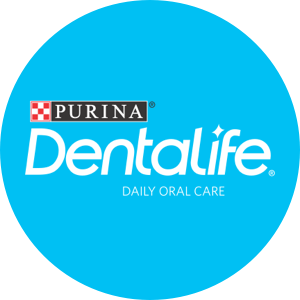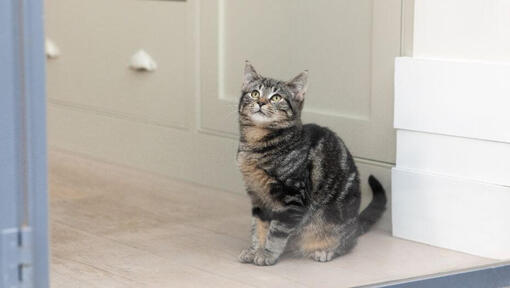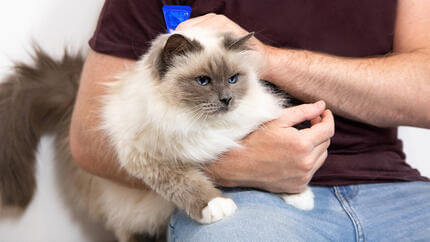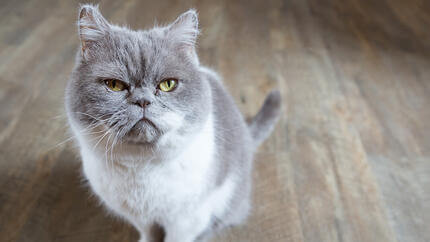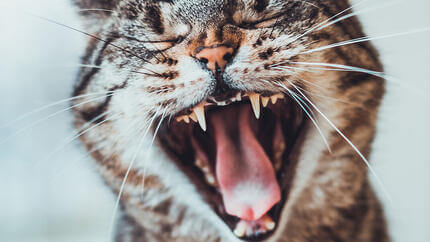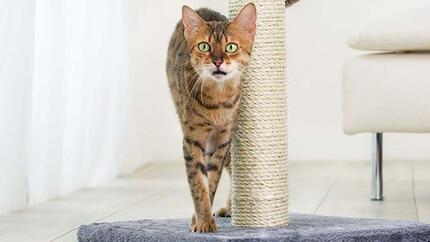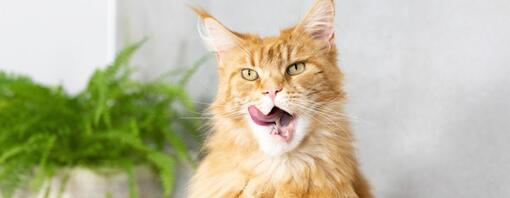
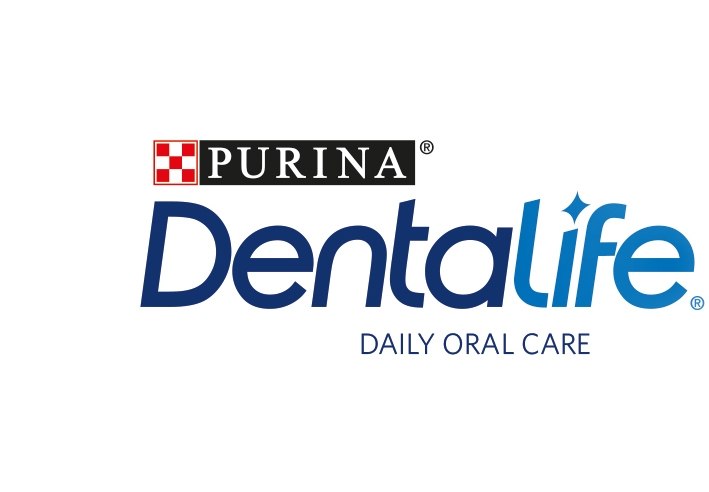
If your feline friend is suffering from bad cat breath, often called halitosis, we firstly recommend you take them to visit the local vet. Your vet will be able to examine your cat’s teeth and mouth to check if there isn’t a serious issue causing your cat’s bad breath. Keep reading to find out about the possible causes of feline halitosis.
Causes of bad breath in cats
There are several possible causes of bad breath in cats. These are some of the most common:
1. Diet
The food your cat consumes can often be a cause of bad breath. If you’re asking yourself why your cat’s breath smells, it might be a good idea to look at what they’re eating. If you have taken your cat to the vet and ruled out any oral health issues, then their diet may well be the cause. Occasionally wet and soft cat food can cause bad cat breath as it can stick to a cat’s teeth, which tends not to happen with dry food.
2. Gingivitis
Gingivitis is an inflammation of the gums. It occurs when an accumulation of plaque and bacteria builds up in your cat’s mouth over time. Gingivitis can be uncomfortable for your cat and may cause bad breath in cats.
3. Periodontal disease
Periodontal disease can also develop when a cat is suffering gingivitis for a prolonged period of time. If the gingivitis is left untreated it can cause tartar (hardened plaque) to build up underneath a cat’s gums which creates little pockets of space. These pockets are the perfect breeding ground for bacterial growth and this can lead to periodontal disease, another common cause of bad breath in cats.
4. Coprophagia and pica
Coprophagia is the term for a cat who is eating their own or other animals’ faeces. Pica is a medical issue in cats where it regularly eats non-food items. Both of these issues can cause bad cat breath. If you suspect your cat has been eating something they shouldn’t, it’s best to take them to the vets.
5. Stomatitis
Feline stomatitis occurs when the whole of a cat’s oral cavity becomes severely inflamed. One common symptom of stomatitis is very bad cat breath. It’s important to book a consultation with your vet if you notice your cat’s breath has a strong, foul smell to it. Read our guide to stomatitis in cats for more symptoms and advice.
6. Kidney disease
On very rare occasions, kidney disease can cause bad breath. There are two different types of kidney diseases that your cat could suffer from. The first is acute kidney failure and the second is chronic kidney failure. There are a few different symptoms that could be a sign of kidney failure, such as vomiting, weight loss and bad cat breath. Read our guide to kidney disease in cats for more information.
7. Diabetes
Diabetes could also be behind a cat’s bad breath. If your cat is diagnosed with diabetes you may notice their breath have a fruity smell to it. This rare smell could be the sign of a metabolic problem with diabetes and you should take your cat to a vet straight away. Other signs that your cat may have diabetes are a significant increase in urinating and drinking along with an increase in appetite – if you notice this and your cat hasn’t been diagnosed you should book them in to see the vet as soon as possible. Read our guide to cat diabetes for more information.
Treating bad breath in cats
If your cat has bad breath it’s important to make sure you take them to the vet to rule out any more serious issues being the cause. This being said, some cats suffer from bad breath even if there are no problems with their teeth and gums.
Try out some of the steps below to reduce the bad smell coming from your cat’s mouth. If your cat is suffering from gum disease, check with your vet before carrying out any home treatments as the inflamed gums can be sensitive.
1. Cleaning your cat’s teeth at home
Brushing a cat’s teeth regularly not only helps reduce plaque and tartar build-up, but it can also reduce bad cat breath. When cleaning a cat’s teeth, it’s important you do it somewhere comfortable and whilst using a cat toothbrush – one specially designed for their small, sharp teeth. Never give a cat human toothpaste, instead, you should use specialist pet toothpaste designed for cats. If you do want to try this at home, read our step-by-guide to cleaning your cat’s teeth.
2. Cleaning your cat’s teeth at the vets
If you think your cat needs a more effective and rigorous clean, it may be worth asking your vet to clean their teeth with specialist tools. The equipment your vet has will be more effective than what you have at home. Asking your vet to give your cat’s teeth a professional clean every so often will help to remove plaque and tartar that could be present in your cat’s mouth. Doing this will also help to reduce the smell from a cat with bad breath and also give the vet a chance to extract any teeth that are rotten or causing pain.
3. Dental cat treats
Feeding your cat dental treats such as Dentalife Cat treats can make a real difference to your cat’s bad breath and their overall dental hygiene. Feeding your cat 17 Dentalife Cat treats a day is scientifically proven to help reduce tartar. This is because each treat your cat chews surrounds the teeth and helps to provide a deep clean, and removing this tartar and plaque can help a cat with bad breath.
Dentalife Cat treats have no added artificial colours and preservatives and come in a resealable pack to keep the treats fresh. Learn more about Dentalife Cat treats and how they can improve your cat’s dental health today.
Shop the Dentalife Cat range:
Related articles by Dentalife
